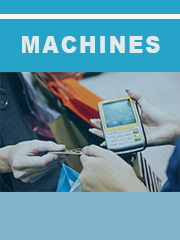Report overview
Laboratory Analytical Instrumentations encompass a wide range of instrumentation whose principle purpose is to qualitatively and quantitatively analyze samples; the chemical makeup of a sample and the quantity of each component within a sample. The wide range of available equipment also allows for a wide range of testing methods and their respective applications.
This report aims to provide a comprehensive presentation of the global market for Laboratory Analytical Instrumentation, with both quantitative and qualitative analysis, to help readers develop business/growth strategies, assess the market competitive situation, analyze their position in the current marketplace, and make informed business decisions regarding Laboratory Analytical Instrumentation. This report contains market size and forecasts of Laboratory Analytical Instrumentation in global, including the following market information:
Global Laboratory Analytical Instrumentation Market Revenue, 2018-2023, 2024-2029, ($ millions)
Global Laboratory Analytical Instrumentation Market Sales, 2018-2023, 2024-2029, (Units)
Global top five Laboratory Analytical Instrumentation companies in 2022 (%)
The global Laboratory Analytical Instrumentation market was valued at US$ 7672.6 million in 2022 and is projected to reach US$ 10850 million by 2029, at a CAGR of 5.1% during the forecast period. The influence of COVID-19 and the Russia-Ukraine War were considered while estimating market sizes.
Laboratory Analytical Instrumentations are used not only in the laboratory environment, but also on the field. They include, but are not limited to the following areas: Analytical Chemistry, Clinical Analysis, Environmental Testing, Food & Beverage Analysis, Forensic Analysis, Life Science Research, Materials Characterization and Research, Petrochemical Testing and Pharmaceutical Analysis. Analytical lab instrumentation includes those used within spectroscopy, mass spectrometry, electrochemical analysis, thermal analysis, separation analysis, microscopy, and the various hybrid technologies (e.g. GC-MS and HPLC-MS).
We surveyed the Laboratory Analytical Instrumentation manufacturers, suppliers, distributors and industry experts on this industry, involving the sales, revenue, demand, price change, product type, recent development and plan, industry trends, drivers, challenges, obstacles, and potential risks.
Total Market by Segment:
Global Laboratory Analytical Instrumentation Market, by Type, 2018-2023, 2024-2029 ($ Millions) & (Units)
Global Laboratory Analytical Instrumentation Market Segment Percentages, by Type, 2022 (%)
Element Analysis
Separation Analysis
Molecular Analysis
Global Laboratory Analytical Instrumentation Market, by Application, 2018-2023, 2024-2029 ($ Millions) & (Units)
Global Laboratory Analytical Instrumentation Market Segment Percentages, by Application, 2022 (%)
Government Institutions
Research Organizations
Semiconductors, Electronics and Nanotechnology
Hospitals and Medical Centers
Chemicals
Mining and Metals
Global Laboratory Analytical Instrumentation Market, By Region and Country, 2018-2023, 2024-2029 ($ Millions) & (Units)
Global Laboratory Analytical Instrumentation Market Segment Percentages, By Region and Country, 2022 (%)
North America
US
Canada
Mexico
Europe
Germany
France
U.K.
Italy
Russia
Nordic Countries
Benelux
Rest of Europe
Asia
China
Japan
South Korea
Southeast Asia
India
Rest of Asia
South America
Brazil
Argentina
Rest of South America
Middle East & Africa
Turkey
Israel
Saudi Arabia
UAE
Rest of Middle East & Africa
Competitor Analysis
The report also provides analysis of leading market participants including:
Key companies Laboratory Analytical Instrumentation revenues in global market, 2018-2023 (Estimated), ($ millions)
Key companies Laboratory Analytical Instrumentation revenues share in global market, 2022 (%)
Key companies Laboratory Analytical Instrumentation sales in global market, 2018-2023 (Estimated), (Units)
Key companies Laboratory Analytical Instrumentation sales share in global market, 2022 (%)
Further, the report presents profiles of competitors in the market, key players include:
Agilent Technologies
Bruker
PerkinElmer
Danaher
Thermo Fisher Scientific
ABB
AB Sciex
Alpha Omega
Ametek
AMS Technologies
Analytik Jena
Bio-Rad Laboratories
CBS Scientific Company
Cole-Parmer Instrument Company
Evans Analytical
Foss
Hitachi High-Technologies
Harvard Bioscience
Helena Laboratories
Outline of Major Chapters:
Chapter 1: Introduces the definition of Laboratory Analytical Instrumentation, market overview.
Chapter 2: Global Laboratory Analytical Instrumentation market size in revenue and volume.
Chapter 3: Detailed analysis of Laboratory Analytical Instrumentation manufacturers competitive landscape, price, sales and revenue market share, latest development plan, merger, and acquisition information, etc.
Chapter 4: Provides the analysis of various market segments by type, covering the market size and development potential of each market segment, to help readers find the blue ocean market in different market segments.
Chapter 5: Provides the analysis of various market segments by application, covering the market size and development potential of each market segment, to help readers find the blue ocean market in different downstream markets.
Chapter 6: Sales of Laboratory Analytical Instrumentation in regional level and country level. It provides a quantitative analysis of the market size and development potential of each region and its main countries and introduces the market development, future development prospects, market space of each country in the world.
Chapter 7: Provides profiles of key players, introducing the basic situation of the main companies in the market in detail, including product sales, revenue, price, gross margin, product introduction, recent development, etc.
Chapter 8: Global Laboratory Analytical Instrumentation capacity by region & country.
Chapter 9: Introduces the market dynamics, latest developments of the market, the driving factors and restrictive factors of the market, the challenges and risks faced by manufacturers in the industry, and the analysis of relevant policies in the industry.
Chapter 10: Analysis of industrial chain, including the upstream and downstream of the industry.
Chapter 11: The main points and conclusions of the report.
